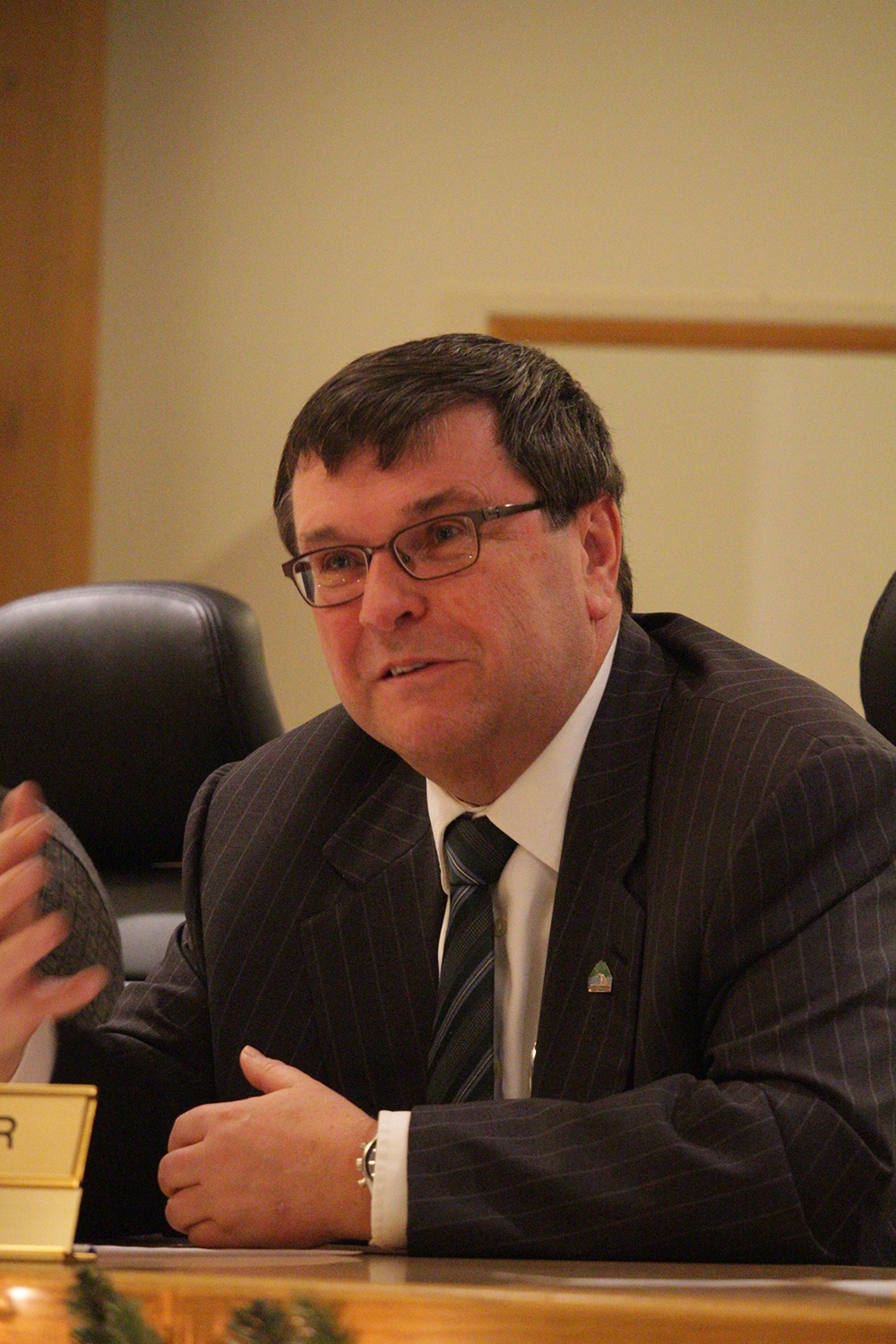At least three affordable housing developments in Haliburton County and the City of Kawartha Lakes are at a standstill after local service provider, KLH Housing Corporation, said a combination of rising interest rates, increased construction costs, and a lack of financial support from federal and provincial partners has made it “impossible” for new build projects to proceed.
Kirstin Maxwell, CEO of KLH, told The Highlander Feb. 21 that projects in Minden, Lindsay and Fenelon Falls would not be completed until the organization has found a way to make them more affordable.
“When interest rates started to climb, we redid our financials, and the numbers just weren’t working out anymore,” Maxwell said. “The financial realities of today are quite different than when we originally planned these projects.”
Minden Hills mayor Bob Carter, who also sits on the KLH board, said the formula traditionally used by entities like KLH to determine the final bill of a project, and subsequent cost recovery, has been thrown off by inflation.
Explaining the process, he said KLH will add up all expenditures involved with a project, including purchasing land, servicing it, and building on it, and then go about sourcing a mortgage. Once all operating costs have been accounted for, rents are determined on a cost-recovery basis.
“Our problem right now is that the cost of building is so high, and the cost of borrowing is so high, that the total operating cost to run the building is far greater than the income the building would generate,” Carter said, noting these types of operations cannot run at a deficit. “You must charge rents that will keep the building from going into debt. But, in this situation, the rents would be way higher than anyone could reasonably afford.”
Maxwell noted KLH receives “very little” funding from the federal and provincial governments. Referencing the build in Lindsay, Maxwell said the cost, prepandemic, was pegged at just under $16 million, with 24 per cent covered by KLH, 22 per cent by the City of Kawartha Lakes, eight per cent by the province, and six per cent by the feds. Around $6 million, or 40 per cent, is unfunded, meaning KLH will have to source a mortgage.
She has called on the two upper-level governments to increase their financial contributions to affordable housing projects, noting municipalities cannot afford to take on the burden alone.
When approached for comment, MPP Laurie Scott said the province will provide the City of Kawartha Lakes – the local service manager – with $4.4 million to support various housing and homelessness prevention programs this fiscal year, with a further $9.15 million paid out in social services relief funds.
“Service managers… have the flexibility to choose how to best use provincial funding for programs and services that address and prevent homelessness in their communities, such as rent supplements, homeless shelters, and supportive housing,” Scott wrote in an email.
MP Jamie Schmale did not respond as of press time.
Carter said one possible solution could be for government agencies that back these mortgages, such as Infrastructure Ontario, to extend their amortization period by more than the current 30-year limit to allow service providers to spread their repayments over a longer period.
‘We’ll do what we can’
Maxwell said KLH will continue with predevelopment work for the Minden project, which is slated to bring 35 units to the corner of Hwy. 35 and County Road 21, in the hopes that more government funding comes down the pipeline. She noted the organization is still listening on future development proposals, too.
“Our plan now is to get the permits we need, figure out exactly how much a project will cost, and then assess the situation from there. If we’re able to move forward with a project, we will. If the province or feds springs a surprise and opens a new funding stream, then great, we’ll be first in line,” she said.
Demand for services and supports through KLH is greater than ever, Maxwell said, with 2,198 households on the waiting list for community housing, including 438 in the County. The average wait time for new applicants is 10 to 14 years.
“It’s a sad situation… but the reality is things need to change [before we can bring any new units online]. Everybody at the municipal level here in the City and County are doing whatever they can to make it happen. This is purely a financial matter, it’s not a matter of political will,” she said





